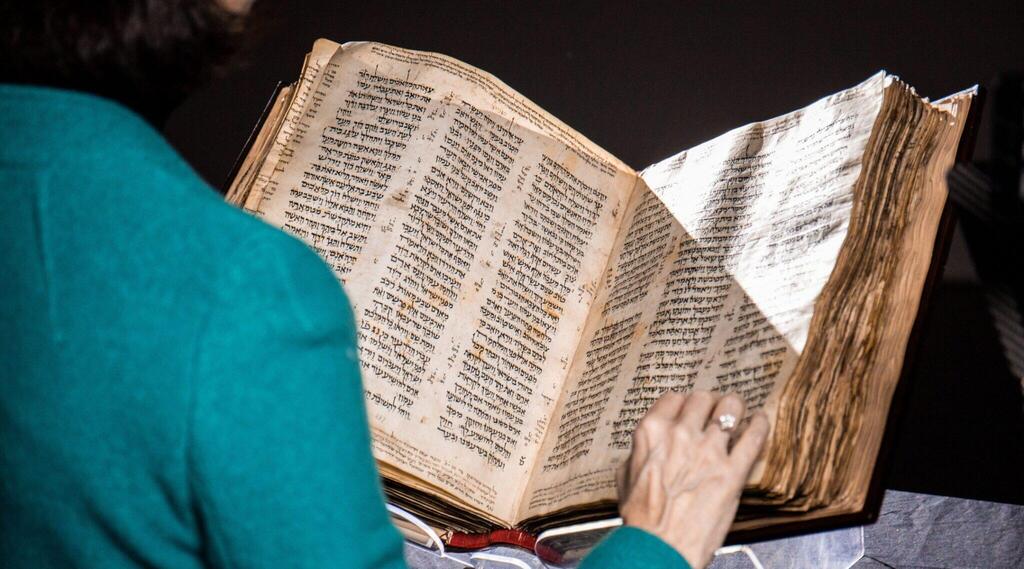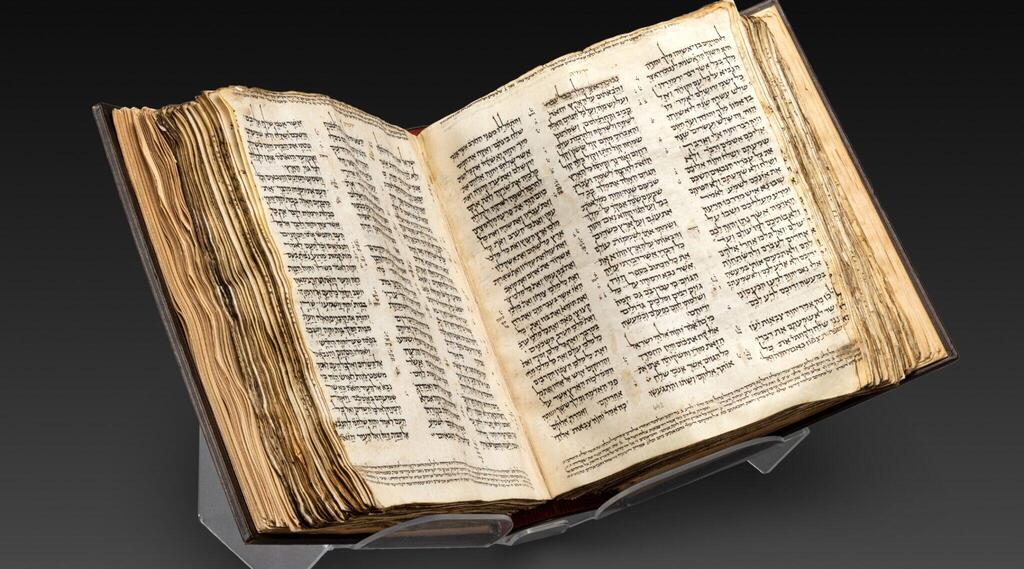The oldest complete copy of the Hebrew Bible as we know it today is about to go on sale — and it could well become the most expensive book or document ever sold.
Written by a single Jewish scribe on 400 pages of parchment about 1,100 years ago, the Codex Sassoon is estimated to fetch $30 million to $50 million when it is sold by Sotheby’s auction house this May.
2 View gallery


The Codex Sassoon, estimated to be about 1,000 years old, is going to auction at Sotheby's
(Photo: Sotheby's)
Before then, the book is embarking on a worldwide tour that will include stops in London, Tel Aviv and more. Those who view it will lay eyes on one of only two known ancient manuscripts comprising almost the entire Hebrew Bible — along with the Aleppo Codex, which is incomplete after hundreds of pages went missing in the 20th century.
“Now that the Codex has been definitively dated as the earliest, most complete text of its kind, it stands as a critical link from the ancient Hebrew oral tradition to the modern, accepted form of the Hebrew Bible that remains the standardized version used today,” said Richard Austin, Sotheby’s global head of books and manuscripts.
The Codex Sassoon is named after the book collector David Solomon Sassoon, who acquired it in 1929 for 350 British pounds, the equivalent of about $28,000 today, when it resurfaced after 600 years.
Sassoon added his bookplate to the inside cover of the binding, extending a centuries-long string of inscriptions detailing the book’s Jewish ownership, much of it throughout what is present-day Syria. The record does not show what happened between when the synagogue where it had been housed was destroyed and Sassoon’s acquisition.
But for the last century, it has been in private collections, in contrast to the other books near its caliber which are owned by major museums and are on display. What remains of the Aleppo Codex can be viewed at the Israel Museum in Jerusalem, while a later but more complete copy is on display in Russia.
2 View gallery


The Codex Sassoon is the oldest, most complete link between the ancient oral tradition and the modern rabbinic tradition
(Photo: Sotheby's)
The book’s latest owner is Jacqui Safra, part of the storied Jewish banking family, who paid for carbon dating that put its age at about 1,100. The book was briefly displayed at the British Museum in 1982.
Its value won’t be determined until after the auction on May 16, but Sotheby’s officials said they believed that its final price could top the $43.2 million that the CEO of a hedge fund paid in 2021 for a first-edition copy of the U.S. Constitution sold by the auction house.
Its value, they say, goes far beyond the page.
“Codex Sassoon marks a critical turning point in how we perceive the history of the Divine word across thousands of years,” said Sharon Mintz, Sotheby’s senior Judaica specialist for books and manuscripts, “and is a transformative witness to how the Hebrew Bible has influenced the pillars of civilization – art, culture, law, politics — for centuries.

